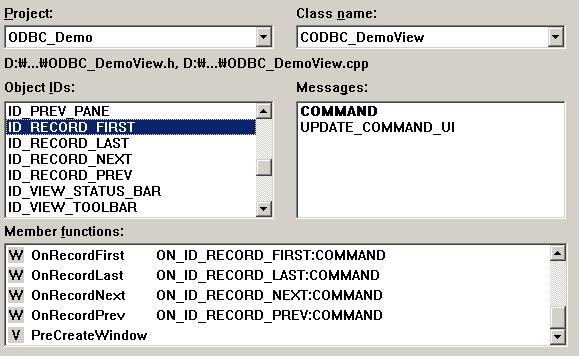
So the “highly accurate” data being given to advertisers was anything but, using it to project costs and sales next to the “murkier” (actually far more precise) numbers on print media would make it look like an unpredictable risk, and everyone was skeptical about it. Your browser might have defaulted to cached versions or not to the same effect, and of course people thought it was important to count unique IPs viewing a given page to make sure those numbers weren’t being inflated by someone just repeatedly refreshing a page, but some ISPs would give you the same IP for life, others a new one every time you dialed up, and a lot of people were using library computers which shared one IP for dozens of people in a given day. In addition to the protection and comfort factor; within a classic chatroom you in no way definitely learn exactly who they are or even what remedy they look such as, and web scams are usually much less difficult to get away by using. News sites get more desperate as most of their readers are now essentially pirating their content to duck their advertisers, contracting ad servers that pay better in exchange for being even more invasive and annoying, and working on systems to detect and disable ad blockers.
 A- Really just cramming in a hell of a lot of ads all over the place while forcing readers to load more pages to see the same content. Why the hell would you, ever? There are a lot of best petite Porn Stars free live chat software which are competing with each other to make the best petite porn stars of it. Lot of wasted data transfer cost there on top of everything else. Back in “the dark ages” they would have to just place an ad on blind faith that it would bring in more money from increased sales than it cost to place it, and no way to know if it worked than watching their numbers. First of course is the fact that those behind these conglomerates were complete scumbags, who took advertisers for a pretty decent chunk of change when first wrangling up their collections of sites, mostly embezzled that money and blew it on prostitutes and drugs (look up the relevant articles on your own time), and completely shafted everyone at the sites they owned when advertisers failed to actually see a matching uptick in sales when advertising with these conglomerates. Advertisers could directly see “how many sales they were getting,” and it was basically zero.
A- Really just cramming in a hell of a lot of ads all over the place while forcing readers to load more pages to see the same content. Why the hell would you, ever? There are a lot of best petite Porn Stars free live chat software which are competing with each other to make the best petite porn stars of it. Lot of wasted data transfer cost there on top of everything else. Back in “the dark ages” they would have to just place an ad on blind faith that it would bring in more money from increased sales than it cost to place it, and no way to know if it worked than watching their numbers. First of course is the fact that those behind these conglomerates were complete scumbags, who took advertisers for a pretty decent chunk of change when first wrangling up their collections of sites, mostly embezzled that money and blew it on prostitutes and drugs (look up the relevant articles on your own time), and completely shafted everyone at the sites they owned when advertisers failed to actually see a matching uptick in sales when advertising with these conglomerates. Advertisers could directly see “how many sales they were getting,” and it was basically zero.
Again, nobody drops what they’re doing to buy a thing whenthey first see an ad. The next thing idiots with CS degrees did to destroy this market was start tracking click-throughs. Very few things on the internet got started by experts in related fields moving to the internet, especially back in the 90s. Mostly, a bunch of wheels were reinvented by a few stupid sheltered rich white kids, who got a heard start on internet adoption after programming classes they took in college because computers are simple and predictable and don’t require you to deal with other human beings. In the late 90s it was not uncommon for a website that could easily boast a solid regular readership of 5000 people a day staring at prominent ad banners for hours at a stretch to be paid for those banners something like 2 hundreths of a cent per ad exposure, maybe a whole penny per click.
This is particularly true for advertising which those with long memories might recall was the actual specific variety of “internet” business behind the late ’90s bubble that burst so badly. You just register it to recall later. As is common to idiot CS majors, these people got it into their heads that they would “improve” advertising by making as much data available to advertisers as humanly possible, allowing them to make better decisions. Cut back on providing metadata as much as you can. What actually happens is they briefly see the ad, then days/weeks/months later, their blender breaks down, or they happen to be in that store, and the memory of that ad comes back to them that oh yeah, store is a good place to get a blender. Cut back on go-betweens as much as you can. The cameras built into laptops (especially Macbooks) often leave much to be desired, so it’s not a bad idea to invest in a higher quality device to make sure guests can see you clearly.
The other areas where the surveillance cameras are installed are schools, colleges, public places, parking lots etc. If you have a broadband internet connection where the camera is installed, then the most beneficial thing is about the accessibility to monitor your premises from anywhere in the world. For others I’m positive it will be better for some, boring for some and not really one thing or another for others. Anyone who has ever actually studied the psychology of advertising, or even stopped for a moment to consider their own spending habits, will tell you that effective advertising does not work in an immediate sense. This, even moreso than inaccurate exposure data, absolutely destroyed the perceived value of internet ads. The publications set aside pages (or portions of pages) for ads, selling this space for fixed prices, to advertisers who could only send along images/blocks of text to place in it, and had absolutely no information whatsoever to go on about how their ads would perform other than the publication sharing their subscriber count/sales figures and demographics they appeal to. As a demographic, such people consistently have absolutely no fucking idea what they are doing, but enough money and lack of competition to muddle their way to something that looks enough like success if you squint that you can con wealthy investors into pumping cash in that steadily inflates stock prices, attracting more investors, then bail out before that bubble bursts.
